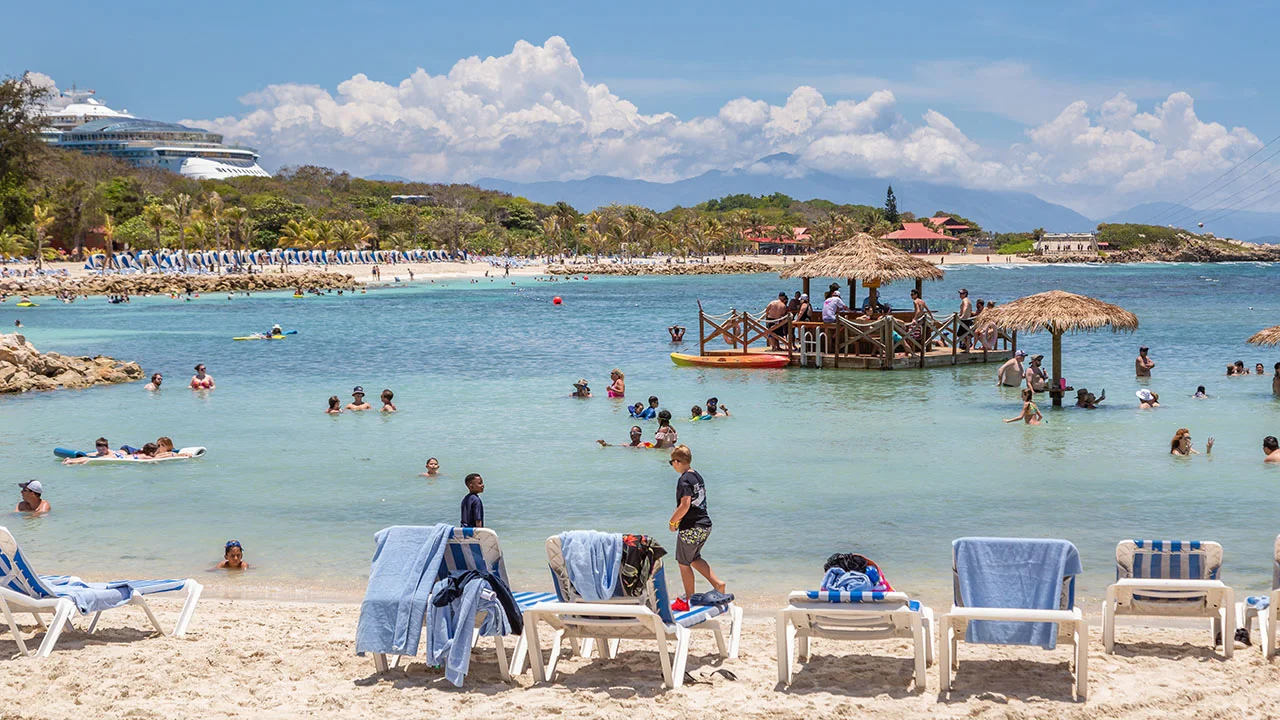The Allure of Visiting Every Country
The desire to visit all countries often stems from a passion for exploration, cultural curiosity, or the thrill of achieving a rare feat. Pioneers like Cassie De Pecol, who claimed to visit every country by 2017, and groups like the Travelers’ Century Club inspire wanderlust with tales of remote destinations and diverse encounters. Social media amplifies this trend, with hashtags like #EveryCountry showcasing passport stamps and far-flung locales. For some, it’s a personal challenge; for others, a way to connect with the world’s vast tapestry. Yet, beneath the glamour, this pursuit raises questions about purpose, impact, and fulfillment. Here are 10 reasons why aiming to visit every country in the world may not be the ultimate travel goal.
1. Superficial Experiences Over Depth
Visiting every country often prioritizes quantity over quality, leading to rushed itineraries that skim the surface of a destination. With 193 countries, even a decade-long journey allows only weeks or days per nation. This pace limits opportunities to engage deeply with local cultures, histories, or communities.
- Example: Spending a day in a capital city like N’Djamena, Chad, might tick a box but offers little insight into the Sahel’s nomadic traditions or Lake Chad’s ecological challenges. In contrast, a week in a single region, like Peru’s Sacred Valley, allows for meaningful interactions, such as learning Quechua phrases or joining a weaving workshop.
- Impact: Superficial visits reduce travel to a checklist, missing the chance to form lasting memories or understand a place’s complexities.
Alternative: Focus on fewer countries, spending extended time in each to build connections and uncover hidden gems.
2. Environmental Impact of Excessive Travel
Global travel, especially by air, has a significant carbon footprint. Visiting every country requires countless flights, often to remote or less-connected destinations, contributing to greenhouse gas emissions.
- Data: The International Air Transport Association (IATA) estimates aviation accounts for 2% of global CO2 emissions, with long-haul flights being the most polluting. A single round-trip flight from New York to Tokyo emits roughly 2 tons of CO2 per passenger, equivalent to a year’s worth of driving for some.
- Challenge: Countries like Tuvalu or the Maldives, already vulnerable to climate change, face rising sea levels partly exacerbated by global tourism emissions. Visiting such places to “complete the list” can feel paradoxical when your travel contributes to their environmental threats.
Alternative: Prioritize low-carbon travel, such as train journeys in Europe or extended stays in one region, and support eco-friendly initiatives like carbon offsetting or local conservation projects.
3. Ethical Concerns in Unstable Regions
Not all countries are safe or welcoming for tourists, and visiting unstable or conflict-prone nations raises ethical dilemmas. Some travelers visit places like Syria, Yemen, or North Korea to check them off, often requiring special permissions or guided tours that may fund questionable regimes or bypass local realities.
- Example: Tourism in North Korea is tightly controlled, with proceeds often supporting the government rather than local communities. Similarly, visiting active conflict zones risks exploiting local suffering for personal achievement.
- Risks: Such travel can endanger the traveler, burden local resources, or trivialize serious geopolitical issues.
Alternative: Support recovering nations, like Rwanda or Bosnia, where tourism aids economic growth and cultural exchange without compromising safety or ethics.
4. Financial and Time Constraints
Visiting every country demands immense resources, making it an unrealistic goal for most. The financial and time costs can strain personal well-being and limit other life priorities.
- Costs: A modest estimate for visiting 193 countries, assuming $1,000-$5,000 per trip (flights, visas, accommodations), ranges from $193,000 to $965,000, excluding time off work or unexpected expenses like medical emergencies. Visas for countries like Eritrea or Turkmenistan can cost $100-$500 and require lengthy applications.
- Time: Even at a pace of 10 countries per year, the journey takes nearly two decades, disrupting careers, relationships, or family life. For many, this commitment overshadows other goals, like education or homeownership.
Alternative: Curate a manageable list of dream destinations, balancing travel with personal and professional aspirations.
5. Cultural Insensitivity and Misrepresentation
Rapid travel across diverse nations increases the risk of cultural missteps or perpetuating stereotypes. With limited time, travelers may rely on superficial impressions or outdated narratives, missing the nuances of local customs.
- Example: A quick stop in a country like Papua New Guinea might focus on tribal imagery, ignoring its urban diversity or modern challenges. Posting such experiences online can reinforce exoticized views, reducing complex cultures to Instagram aesthetics.
- Impact: Hasty visits hinder genuine cross-cultural understanding, potentially offending locals or misrepresenting their way of life.
Alternative: Engage in cultural immersion through homestays, language classes, or volunteering, ensuring respectful and informed interactions.
6. Burnout and Diminishing Returns
The relentless pace of visiting every country can lead to physical and mental exhaustion, diminishing the joy of travel. Constant planning, jet lag, and cultural overload take a toll, turning adventure into a chore.
- Example: Travelers like Graham Hughes, who visited all countries without flying, described moments of fatigue and logistical nightmares, from border delays to health issues. The thrill of new destinations wanes when every stop feels like an obligation.
- Psychology: The “hedonic treadmill” suggests that chasing external goals, like country-counting, leads to fleeting satisfaction, as the novelty fades and the next target looms.
Alternative: Pace travel with rest periods, focusing on destinations that resonate personally rather than chasing arbitrary milestones.
7. Overlooking Lesser-Known Destinations
The goal of visiting every country often prioritizes crossing borders over exploring hidden gems within nations. Many travelers rush through capitals or tourist hubs, missing out on lesser-known regions that offer richer experiences.
- Example: A fleeting visit to Bolivia might focus on La Paz, bypassing the surreal Salar de Uyuni salt flats or the Amazonian Madidi National Park. Similarly, checking off Denmark without exploring the Faroe Islands misses a unique Nordic gem.
- Opportunity Cost: Time spent racing through less compelling destinations could be better used diving deep into a single country’s diverse regions.
Alternative: Create a travel plan that emphasizes regional exploration, like Italy’s Amalfi Coast or Japan’s Hokkaido, over country-hopping.
8. Reinforcing Privilege and Inequality
The ability to visit every country is a privilege tied to wealth, nationality, and visa access, which can inadvertently highlight global inequalities. Citizens of some countries face visa barriers or economic constraints that make such a goal unattainable.
- Example: A passport from Japan or Germany allows visa-free entry to over 190 countries, while holders of Afghan or Iraqi passports access fewer than 30. Travelers from privileged nations may visit restricted countries like Somalia without grappling with the local challenges of mobility or safety.
- Impact: Flaunting a “world traveler” status can feel tone-deaf in communities where travel is a luxury, reinforcing disparities.
Alternative: Advocate for equitable tourism by supporting local economies, choosing ethical operators, and sharing stories that amplify marginalized voices.
9. Missing the Spirit of Travel
Travel is about connection, growth, and discovery, not competition or conquest. The race to visit every country can shift the focus from meaningful experiences to a gamified pursuit, undermining the essence of exploration.
- Example: Instead of savoring a sunset over Santorini’s caldera or learning to cook Moroccan tagine, a country-chaser might prioritize a quick photo at a border crossing, missing the heart of the journey.
- Philosophy: As philosopher Alain de Botton notes, travel’s value lies in transforming our perspectives, not accumulating destinations. A single transformative trip can outweigh dozens of fleeting visits.
Alternative: Define travel by personal growth—learning a new skill, forging friendships, or supporting a cause—rather than numerical goals.
10. Neglecting Home and Local Exploration
The obsession with global travel can overshadow the beauty and richness of one’s own country or region. Many travelers overlook nearby destinations in pursuit of exotic locales, missing opportunities for accessible and sustainable exploration.
- Example: A U.S. traveler chasing countries might skip the Grand Canyon or New Orleans’ jazz scene, while a European might bypass Slovenia’s Lake Bled for farther-flung shores. Local travel often reveals hidden cultural or natural treasures.
- Benefits: Exploring closer to home reduces costs, emissions, and logistical stress, fostering a deeper appreciation for one’s roots.
Alternative: Dedicate time to domestic travel, uncovering local history, cuisine, or landscapes before venturing abroad.
Practical Considerations for Thoughtful Travel
If the goal of visiting every country isn’t ideal, how can travelers pursue meaningful global exploration? Here are practical tips to align your journeys with purpose and sustainability:
- Curate Your List: Select 20-30 countries that resonate with your interests, whether it’s history (Egypt, Greece), nature (Costa Rica, New Zealand), or culture (India, Japan). Focus on depth, spending weeks or months in each.
- Slow Travel: Embrace longer stays in fewer places. Rent an apartment in Lisbon for a month or volunteer in a Peruvian village to build connections.
- Sustainable Practices: Opt for trains, buses, or shared rides where possible. Support eco-lodges, like Jordan’s Feynan Ecolodge, and avoid over-touristed sites during peak seasons.
- Cultural Engagement: Learn basic phrases, attend local festivals, or join cooking classes to immerse yourself. Platforms like WithLocals connect travelers with authentic experiences.
- Ethical Choices: Research destinations to avoid supporting unethical regimes or overtourism. Choose operators like Intrepid Travel, which prioritize community benefits.
- Reflect and Share: Keep a journal to process experiences and share stories that highlight local perspectives, not just your achievements.
Addressing Common Counterarguments
Some argue that visiting every country fosters global understanding or personal growth. While exposure to diverse cultures is valuable, superficial visits often fall short of true empathy or insight. Others claim the challenge inspires discipline or resilience, but similar growth can come from mastering a language, hiking a long-distance trail, or volunteering abroad. The key is intentionality—travel should serve a purpose beyond ticking boxes.
Final Thoughts
The dream of visiting every country in the world is seductive, promising adventure, prestige, and a global perspective. Yet, this pursuit often leads to shallow experiences, environmental harm, ethical dilemmas, and personal strain. Travel’s true magic lies in its ability to connect us with people, places, and ideas, not in the number of borders crossed. By focusing on fewer destinations, embracing slow and sustainable travel, and valuing depth over breadth, you can craft journeys that are richer, more responsible, and more fulfilling.



